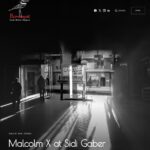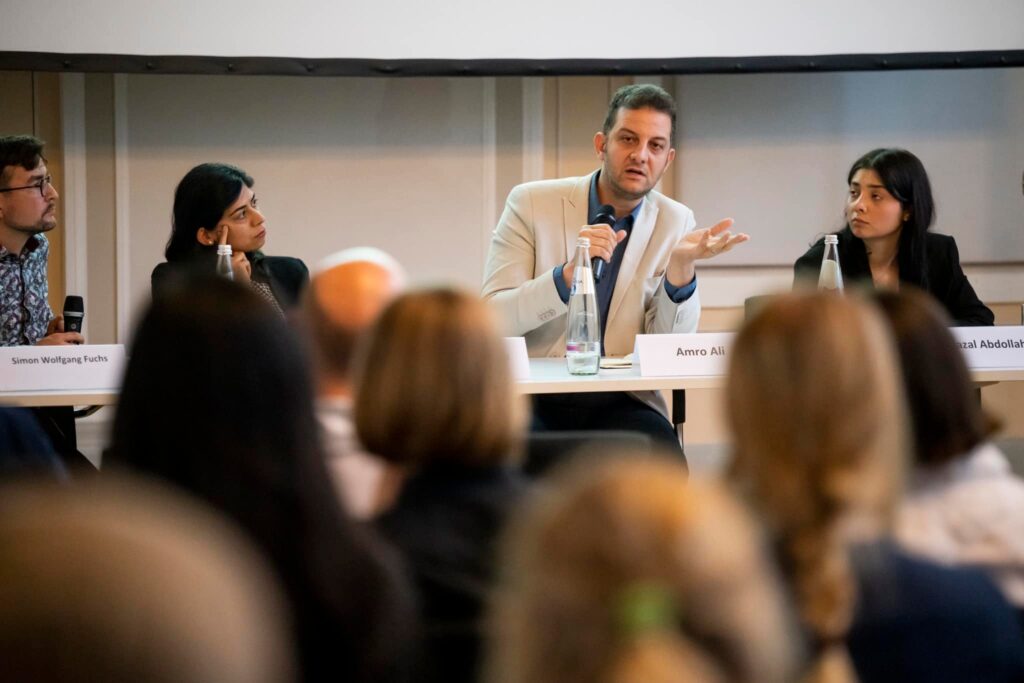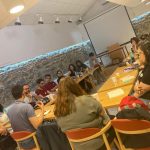Across the streets of Alexandria, Egypt, there is a peculiarly subdued behavior amongst the ultra-conservative Muslims, also known as ‘Salafis’. Their characteristic certainty and preaching has been replaced with a somewhat stoic expression of disorientation and withdrawal.
This feeling goes deeper than the recent disqualification of Salafist presidential candidate Hazem Salah Abu Ismail. It speaks of the shock therapy Salafis have undergone since last year’s revolution due, in part, to the politics 101 trajectory of their representatives.
Prior to the 2011 Egypt Revolution, Salafis would stop people in Alexandria’s streets to offer religious advice, hand out brochures and invite Muslim worshipers to free religious classes following Friday prayers.
Their advice was sought out, practices imitated, and beards would grow. All the while, Saudi-funded Salafi satellite television channels were, like an intravenous drip, beaming their messages into countless households.
A loose network of Salafis emerged across the coastal city with some degree of public legitimacy given their focus on faith and practices. For this reason the former regime left the Salafis, unlike the Muslim Brotherhood, relatively unhindered.
Yet Salafis sat on a self-imposed fault line that would signal the first significant rupture of their credibility in the event of a socio-political earthquake.
In an uncanny recap of Church complicity with the Tsar during the 1917 Russian Revolution, several prominent Salafist figures voiced their opposition to the revolution unfolding in Tahrir Square and beyond, even labeling it forbidden to disobey President Hosni Mubarak.
Democracy that was supposedly abhorrent to Salafis changed overnight when the revolution prevailed. They set up a party and ran in the elections.
In the following months, the Salafi clerics unleashed a double-edged sword. They ran for parliament or supported the campaigning of fellow Salafis running, greatly helped by capitalizing on their networks formed during the Mubarak days.
The flipside to this clamor for power politics was the public gradually noticed less Salafis stopping them in the streets and religious classes dwindled. One main linkage of the Salafi movement with the public was strained.
On the street, the common Salafi advice was coming from the molding posters across public walls asking you to vote for a Whitman’s Sampler of bearded candidates from the Salafist Hezb Al-Nour party.
In the past few months, the divide grew wider between not only the general public and Salafis, but between Salafis themselves.
The short-sightedness of the Islamists was their implicit linking of voting to afterlife ramifications. The unintended effect was that Islamist politicians would be raised to an unrealistic higher standard that made any slip-up amplified when deliverance did not match “divine” expectations.
And what slip-ups they made!
The People’s Assembly turned into a B grade comedy audition with Hezb Al-Nour parliamentarians providing the bulk of the awkward characters. From the “Nosegate” parliamentarian who lied about being beaten up, only to have had rhinoplastic surgery, to a legislator who espoused the conspiratorial nature of the English language.
Salafis in parliament were outright embarrassing. No real attempt was made to address the country’s major problems. Cracking down on porn websites was apparently more pressing of an issue than macroeconomic reforms.
Not only do Islamist actions undermine their street cred with the public, but it backfires terribly on their politics. They pushed for the ‘YES’ vote that embraced the ‘no foreign citizenship’ article in last year’s constitutional referendum, in part, to marginalize liberal figure such as Nobel laureate Mohamed ElBaradei (who supposedly once held an Austrian passport).
Such opportunistic play on identity politics came back to haunt them through the ghost of Abu Ismail’s mother. The woman who, as a result of acquiring US citizenship, posthumously disqualified her son from running for high office and therefore saved Egypt.
Yet the self-entitlement of Abu Ismail disturbed the most conservative segments of society. His populist appeals to Egypt’s impoverished masses left the “average” Salafi on the street in a state of uneasiness.
Finally, there was a red line Salafi politics crossed when they impinged on the issue of freedom. The religiosity of Egyptians, Muslim or Christian, is relatively high by any standard of measure. Yet freedom of expression and the package that comes with it is perceived as part of any future social contract with the ruler.
A Gallup poll last year found 94 percent of Egyptians were committed to free speech, the highest in the Muslim world. The subtext Salafis should read into this is that Egypt’s hyper-social society are emphatically against any form of tyranny, whether that tyranny comes to them in a civilian suit, military uniform or religious cloak.
Despite this, the fact that Hezb Al-Nour were able to populate a quarter of the parliamentary seats or Abu Ismail was able to mobilize such frightening large numbers is still indicative of Salafist electoral strength.
The mind-numbing ups and downs of Egyptian politics make it difficult to predict any outcome with certainty. Yet if recurring street mood is any sign to go by, particularly in their stronghold of Alexandria, Salafis may come to realize that their lot is with the collective Egyptian public and not with the growing imperial distance of their clerics.
While Salafis keep an unusual low profile, sipping tea and conversing amongst each other, one hopes this phase of disorientation is a prelude to a wider reflection and contemplation that can lay the groundwork for their participation in a civil society.
One youth, who waved to his former Salafi teacher while we were walking, remarked to me: “Politics corrupts you, it makes you lie and cheat. This is evidence enough that politics and religion just do not mix”
That view seems to have been tacitly accepted by, paradoxically, the Hezb Al-Nour party, in light of their endorsement of presidential candidate Abdel Moneim Aboul Fotouh. The liberal Islamist who states it would be a disaster for Islam and Egypt if preaching and politics is mixed into the brew.
The Salafist “silence” on the street may have just been their loudest protest yet to the party leadership.






